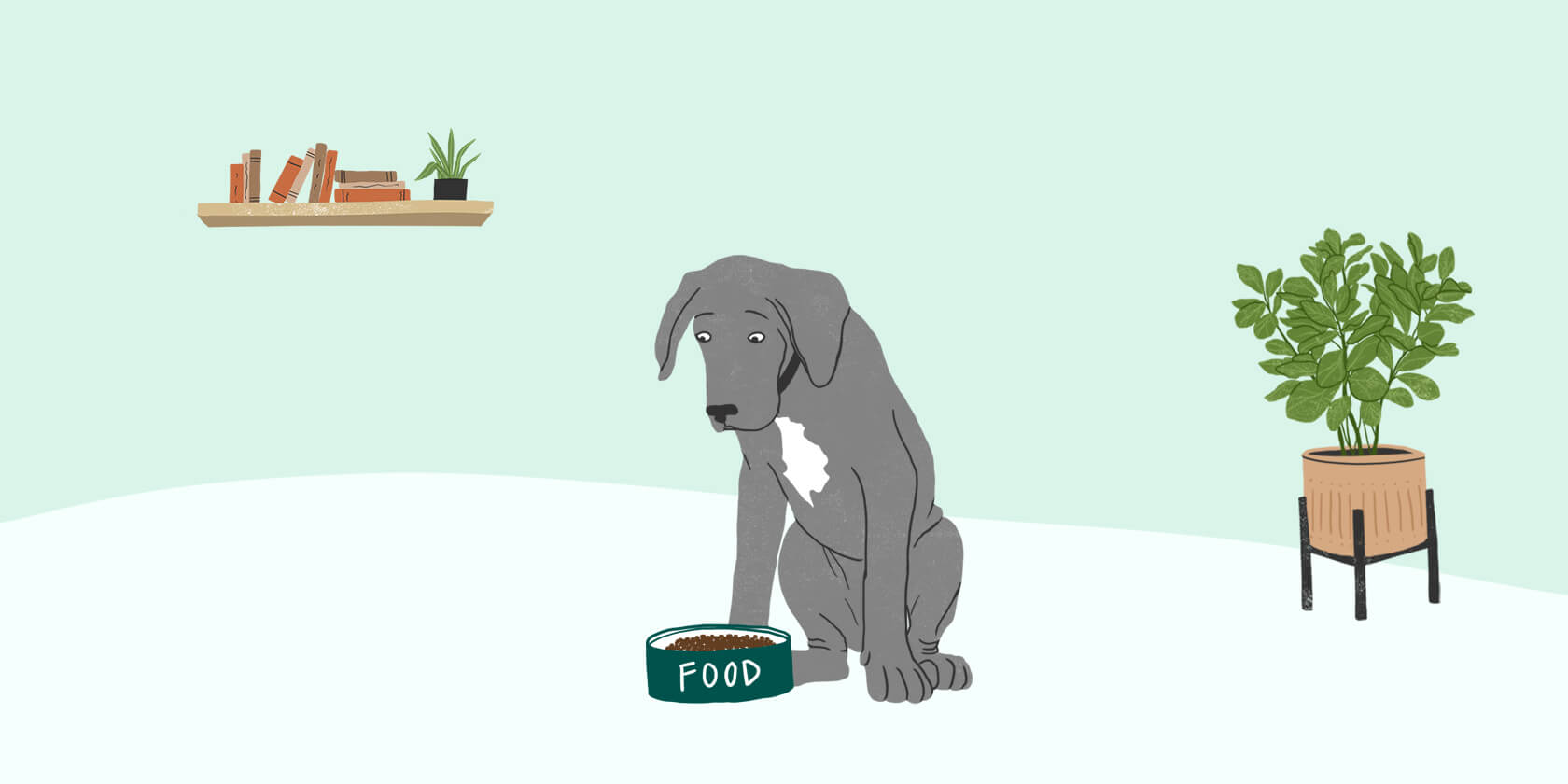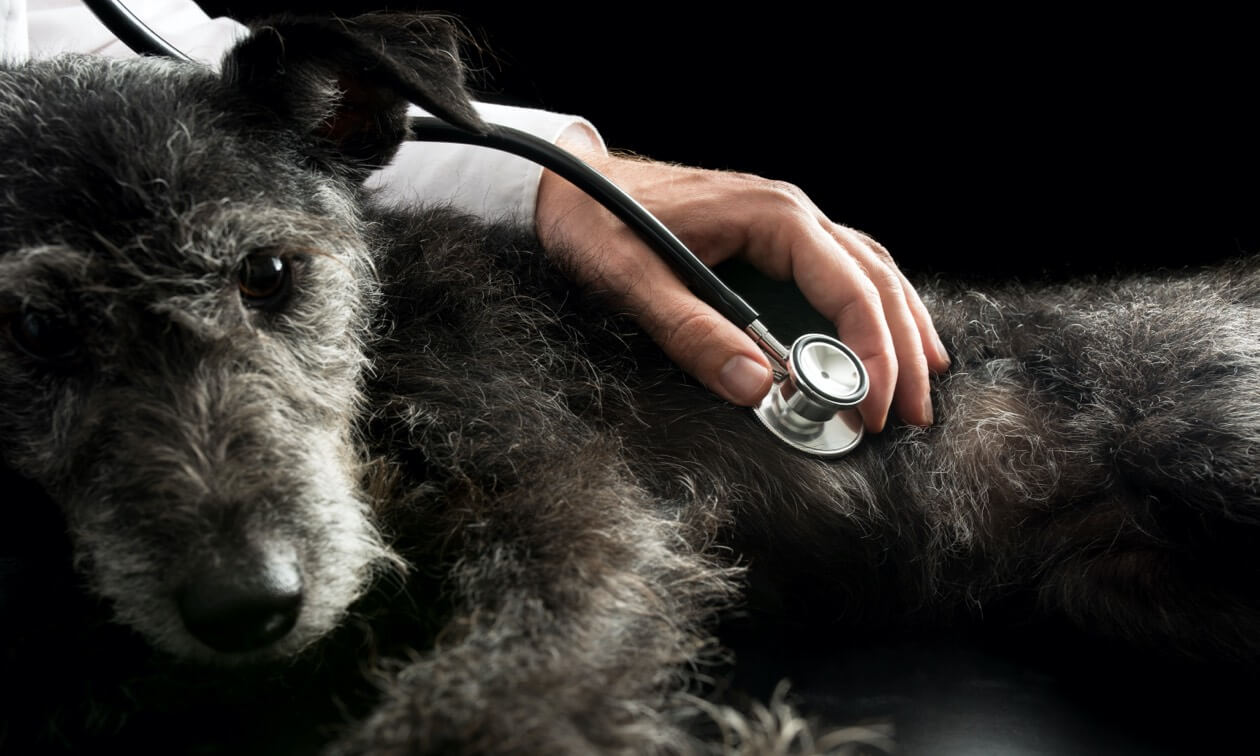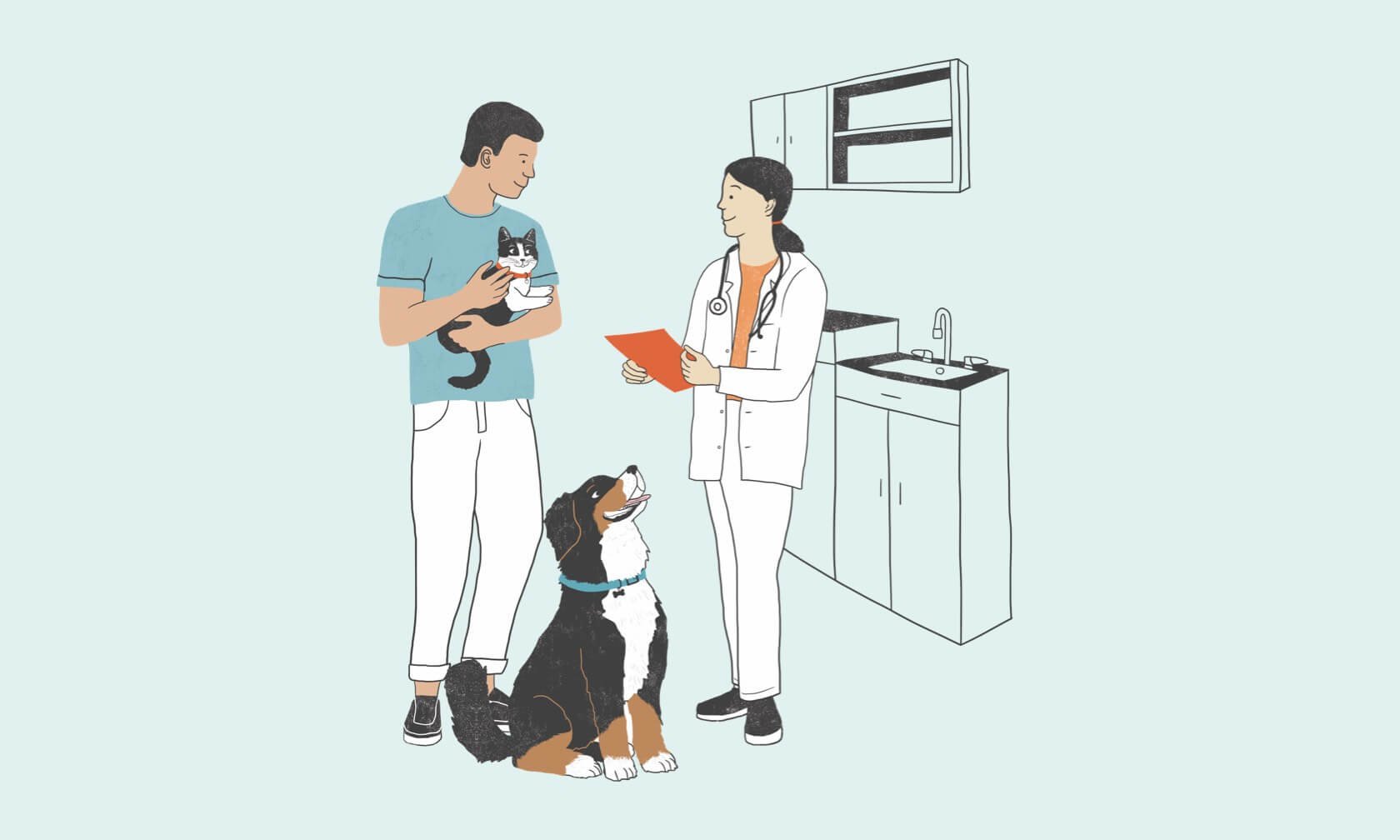The heart is one of the most amazing organs in your dog's body. When it can't perform its essential function of pumping blood, and the body loses its ability to compensate, your dog may be diagnosed with congestive heart failure. But it's not the end of the road — your dog can live a comfortable life with prompt and proper treatment.
What Are the Signs of Congestive Heart Failure in Dogs?
Your dog may show no signs in the early stages of congestive heart failure. Progression of the disease may result in one or more of the following signs:
- Coughing
- Tiring easily with minimal activity
- Constant panting or difficulty taking breaths
- Increased respiratory rate when resting
- Loss of appetite
- Weakness
- Lethargy
- Muscle loss
- Bloated or swollen abdomen
- Swelling of the limbs
- Fainting episodes
- Gray or bluish gums
- Collapse
- Sudden death
A veterinarian should evaluate your dog immediately if you have any concerns. Never delay seeking medical care when your dog is experiencing any form of respiratory difficulty.

What is Congestive Heart Failure in Dogs?
Your dog's lungs receive blood pumped from the right side of the heart, while the left side of the heart pumps blood to the rest of the body. When the heart loses its ability to pump blood properly throughout the body and there's a backup of fluid in the lungs and/or abdomen and other body tissues, the condition is referred to as congestive heart failure (CHF). As fluid builds up in the lungs or abdomen, breathing becomes difficult. When the lungs cannot expand fully, proper movement of oxygen into the bloodstream is prevented. This results in the development of more symptoms and other health issues. As symptoms progress, dogs become increasingly uncomfortable and possibly experience pain and stress. Dogs are at risk of fainting because blood flow can become blocked to the brain.
How is Congestive Heart Failure in Dogs Diagnosed?
Diagnosis is usually based on a physical exam, symptoms, and radiographs (x-rays). Additional tests are often necessary to determine underlying illness and severity. A referral to a cardiologist may be recommended by your veterinarian.
Causes of Congestive Heart Failure in Dogs
Congestive heart failure can be the result of many conditions. The two most common causes in dogs are chronic valve disease (also known as mitral valve insufficiency) and dilated cardiomyopathy (DCM).
Congestive heart failure can also be caused by:
- High blood pressure
- Infection of the heart valves (endocarditis)
- Heart wall defects
- Abnormalities with heart rhythm
- Fluid in the sac surrounding the heart (pericardial effusion)
- Tumors
- Pregnancy
- Some nutritional deficiencies
Treatment for Congestive Heart Failure in Dogs
Treatment for congestive heart failure is a combination of medications, nutritional supplements, diet changes, and stress control. The main goals of treatment are to decrease the buildup of fluid and increase the amount of blood pumped to the lungs and the rest of the body. Treatment for any underlying illness is also important. Lifelong treatment is often required once a diagnosis of CHF is made.
Your dog will need routine checkups every 3-6 months to evaluate their heart and lungs. Blood work, blood pressure monitoring, and other tests will need to be performed regularly to evaluate disease progression and monitor treatment success or need for treatment adjustments.
At-home care and monitoring are an important part of the overall treatment plan, including:
Checking Their Breathing
Regularly monitor your dog's respiratory rate when they are resting.
Keeping Them Calm
Control stress in your dog's environment.
Watching Their Weight
Keep your dog at their ideal weight and body condition.
Managing Their Diet
Feed a calorie-controlled, low-sodium diet.
Keeping Them Active
Regular exercise is important but avoid overexertion.
What Life is Like for Dogs with Congestive Heart Failure
Generally, dogs with CHF have a good quality of life with proper care and management of this and any underlying conditions. Some alterations are needed to diet, weight, and exercise — but most adapt well.
Regular visits to your veterinarian to monitor treatment protocol can improve your dog’s overall well-being and decrease or eliminate symptoms.
Once diagnosed, if you notice significant changes in your dog's resting respiratory rate, gum color, activity level, the severity or frequency of cough, or any swelling develops in their legs or other body parts, contact your veterinarian as soon as possible. Seek immediate medical attention if your dog has any fainting episodes or collapses. Be familiar with locations for emergency care in your area in case your dog needs attention outside of regular office hours.
ZPC-01938R1



